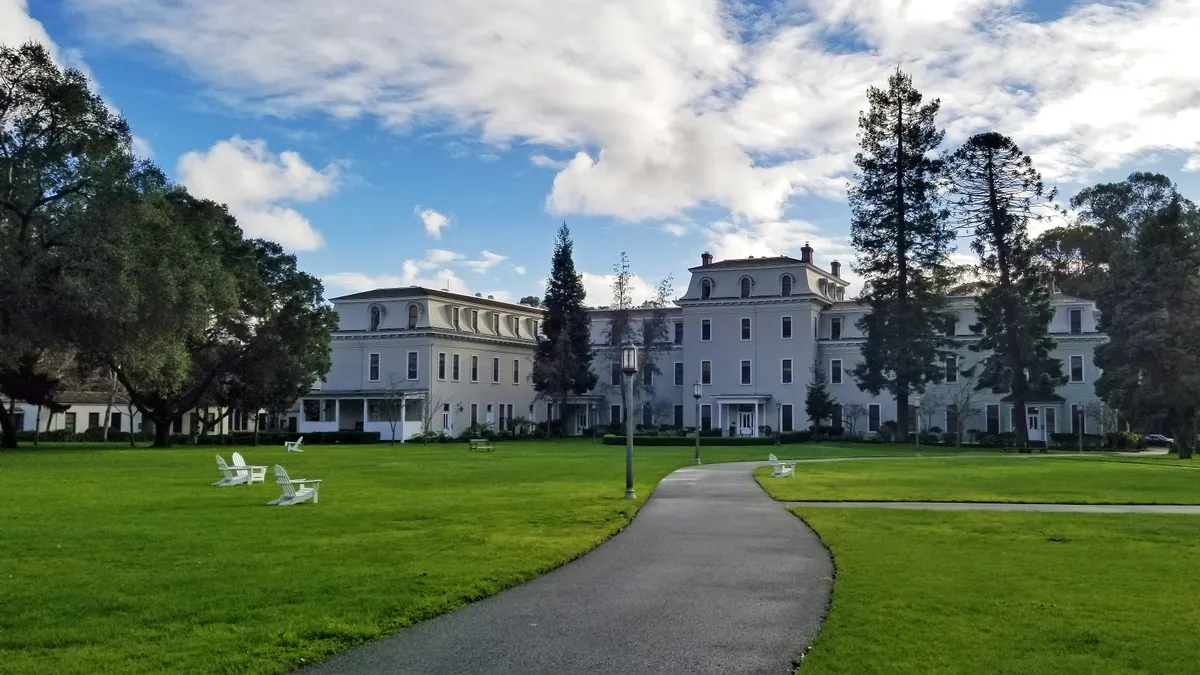Dive Brief:
-
A group of 14 Mills College alumnae, most of whom are on its board of trustees, released a statement Monday opposing a lawsuit that is challenging the institution's plan to be acquired by Northeastern University.
-
The lawsuit comes from two other alumnae, one of whom is president of the college's alumnae association. They allege Mills officials held back crucial financial information that prevented the governing board from fulfilling its fiduciary responsibilities. Because of the lawsuit, a judge recently blocked Mills' plan to combine with Northeastern.
-
The 14 alumnae said in the statement the complaint is "ill considered, divisive, and detrimental to the future of Mills," which is a historically women's institution.
Dive Insight:
The legal battle over Mills' future highlights the pitfalls of higher education mergers, in which leaders can face stiff resistance, even from alumni and members of their own governing boards.
Such is the case at the women's institution in Oakland, Calif., where students and alumnae have protested its possible shutdown and faculty members have given administrators a vote of no confidence.
Mills President Elizabeth Hillman in March said the college faced significant financial challenges and would no longer enroll new first-year undergraduates after fall 2021. Mills would likely confer its final degrees in 2023, she said.
Since then, Hillman announced plans to integrate with Northeastern, creating a coed campus that would offer undergraduate and graduate degrees. Mills currently accepts only women and nonbinary students into its undergraduate programs.
Hillman has continually derided the lawsuit since it was filed last month, calling it in a statement to Higher Ed Dive "a factually incorrect and legally mistaken effort to undermine confidence in the leadership of the College."
After an Alameda County Superior Court judge temporarily prevented Mills from entering into partnerships with other colleges, Hillman, in a separate statement, said the president of the alumnae association chose to serve the interests of that organization and not the college. The college offered to make operational records available for the alumnae association president to review on campus, but the alumnae association president declined the offer, she added.
A representative for the plaintiffs in the lawsuit said the college would only allow the alumnae president to review these documents, which numbered thousands of pages, in-person and alone. She also could not view electronic versions of the documents or make copies, the representative said.
Now, the group of alumnae trustees are adding their voices against the lawsuit.
The alumnae, composed of current and former trustees, said in the statement the best way to continue Mills' legacy and values is to form an alliance with Northeastern, which was "unfortunately interrupted" because of the lawsuit.
"The best, and perhaps only, chance we have to extend our legacy and create change in the world is to survive in a different, sustainable form," the statement reads, adding that the claims of a "few vocal individuals" are harming the college community.
Gaining the support of prominent alumnae could help Hillman sell the merger plan, as board and community buy-in is key in these types of deals. Pushback on recent consolidations in Pennsylvania's and Georgia's public higher ed systems largely stemmed from students, alumni and faculty.














